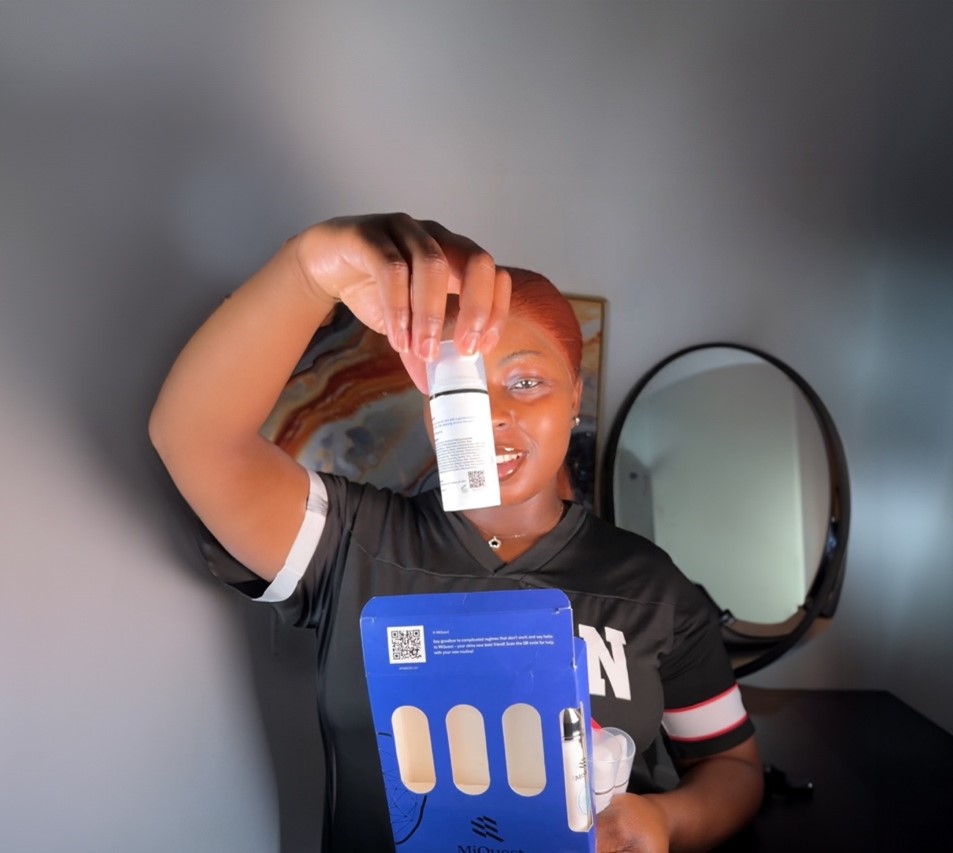
If you’re worried about melasma and you’re looking for treatment for melasma in the UK, you’re not alone. Melasma is a common skin condition that most commonly affects women between the ages of 20 and 40 – but it can affect men too.
But before we tell you about our melasma treatment, let’s get to grips with exactly what melasma is and why it occurs.
What is Melasma?
The term ‘Melasma’ is used to refer to areas or patches of skin that are darker than your normal skin tone. Melasma isn’t raised, and it most commonly occurs on the -
- Cheeks
- Nose
- Chin
- Forehead
- Jawline
- Upper lip
- Neck
- Forearms
It usually appears in a symmetrical pattern, but can sometimes occur on just one side of your face. Melasma isn’t contagious and doesn’t pose any serious health risks, but due to its appearance people often search for melasma treatment to try and find a cream to address this skin concern.
Why Have I got Melasma?
Melasma is a bit of a tricky beast to pin down and why it suddenly appears isn’t always known. However, it’s thought to occur due to melanocytes – which are the cells in our skin that produce pigment (or melanin).
If these cells go into overdrive and produce too much pigment, melasma can occur. You may be more predisposed to developing melasma during -
- Pregnancy
- While taking hormone replacement therapy
- If you’re using birth control contraception pills
Melasma Cream UK
At MiQuest, we know how upsetting dealing with melasma can be. One day your skin is normal, the next it’s developed these annoying patches of discolouration that no matter what you try, just won’t shift.
It can affect your self-confidence, and even contribute to negative feelings of anxiety and depression. Fortunately, at MiQuest we’ve developed a prescription-grade treatment specifically for melasma.
Our melasma cream UK formulation is made up of a unique set of ingredients that work hard to tackle pigmentation issues. So, when you choose MiQuest for your treatment, you’ll receive a formulation that’s tailored to you by our skincare scientists. Our melasma-fighting hero ingredients include -
- Tretinoin – a topical retinoid that boosts cell turnover
- Hydroquinone – a lightening agent that targets pigmentation
- Hydrocortisone – reduces inflammation and suppresses the immune system
- Azelaic Acid – helps to even out skin tone, reduce inflammation and fight spot-causing bacteria
- Niacinamide – a form of vitamin B3 that improves skin barrier function and reduces inflammation
At MiQuest we harness the power of AI skin analysis to scan your skin, so that our skincare specialists can then formulate a customised prescription that targets your personalised skincare concerns.
This unique blend of active ingredients is then delivered direct to your door for you to start your skincare journey. It’s easy, fuss-free, and exactly what your skin needs. As you move forward on your skincare journey, we will check in with you to make sure your prescription is still right for your skin. If your skin changes, so will your prescription. It’s as simple and straightforward as that – no scouring the shops for the right product, no searching online for a cream that may or may not work – just the right ingredients straight to your door.
What Should I Avoid with Melasma?
If you’re worried about developing melasma or making pre-existing melasma more prominent, then there are certain things you can do to help. For instance, make sure you take extra care when choosing any facial cleansing products. Avoid harsh scrubs or chemical peels as these can sometimes aggravate melasma. Instead, look to more natural, non-irritating skincare cleansers that you can add into your skincare regime.
If you’re taking HRT or oral contraceptives, then you might wish to think about some alternatives. Melasma can be triggered by these forms of medication, so if you’re keen to see your melasma fade you might like to look into possible alternatives.
You should also take care to avoid spending excessive time in the sun, and when you are outside make sure to apply a high UVA/UVB SPF sunscreen.
One last thing you should avoid when you’re dealing with melasma is waxing. This is because waxing can be traumatic to the skin and may lead to inflammation and a flare up. If you need to remove hair in an area where you have melasma, look to gentler alternatives.
Beat Melasma with MiQuest
As with many skin concerns, treating melasma takes time and dedication. If you’re committed to using your MiQuest formulation on a regular daily basis we expect you to notice a difference to your skin in about four to six weeks. Stick with it, keep going, and check in with us if you have any questions.
We’re here to help you get your skin looking great again – so let’s do this!






AI-Empowered Dermatology, Personalised For You.






